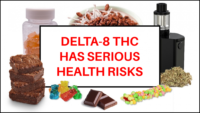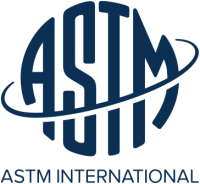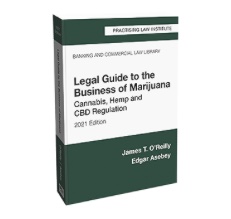Practicing Law Institute Press’s Legal Guide to the Business of Marijuana: Cannabis, Hemp and CBD Regulation is a one-of-a-kind deep dive into the many regulations governing the industry. Aimed at attorneys representing clients in this space, the treatise offers guidance on a range of interrelated topics including state regulation of medical and non-medical cannabis; federal law, enforcement and preemption and their implications for employment, taxes and banking; and the various aspects of establishing and managing a cannabis enterprise, from growth to licensing, transport and distribution. We spoke with co-authors James T. O’Reilly, professor of Public Health Policy at the College of Medicine of the University of Cincinnati and author of leading references on food and drug law, and Edgar J. Asebey, a founding partner of Keller Asebey Life Science Law and a life sciences attorney with over twenty years of experience, about the intersection of the cannabis business and the law.
Q: From the legal industry’s perspective, how has this area of the law evolved over the past few years – and what would you advise clients in cannabis to look for when engaging legal assistance for their businesses?
James T. O’Reilly & Edgar J. Asebey: Over the past few years, we have seen a growing acceptance of the idea that lawfully serving the needs of cannabis consumers is a commendable business initiative. This evolution in thinking – tied to the myriad business opportunities cannabis presents – has given large, mainstream corporate law firms the incentive to grow practices and develop specialists in this area, which is a very positive development.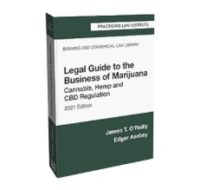
But it is not enough for lawyers to know their way around M&A and the capital markets; they must also have experience with federal regulatory bodies. As regulations continue to evolve, it is essential for practitioners to be familiar with the Food, Drug and Cosmetics Act as well as the Federal Trade Commission Act. The framework for regulating cannabis products already exists, as can be seen in the Warning Letters sent to hemp and CBD companies by both the Federal Trade Commission and Food and Drug Administration (as well as, most recently, the FDA and CDC’s warning about delta-8 THC). If a client places their hemp or CBD product into the stream of commerce, that product will be subject to FDA, FTC and relevant state laws. We strongly recommend seeking out advisors who truly understand these regulations and how they align with the regulatory agencies’ procedures and agendas.
Q: What are the most urgent legal and regulatory topics the industry is watching these days?
O’Reilly & Asebey: Our treatise follows and analyzes the most pressing legal issues facing those in the cannabis and hemp space. In our most recent edition, we add discussion of the Final Rule for the establishment of a domestic hemp production program. We think this is a significant development in that it attempted to address some of the industry’s criticism of some provisions found in the Interim Final Rule, particularly around issues of sampling and testing for THC content. The Final Rule clarified issues around THC percentage testing methodologies, but disappointed many in the industry by leaving in place the low 0.3% dry weight threshold for an acceptable hemp THC level. On the other hand, The Final Rule raises the threshold for a negligent violation from 0.5% to 1.0% total THC and limits the number of violations a grower can receive in one year to one, easing potential penalties for violations.
Of course, the regulation of CBD products is on the minds of many in the industry. Key questions remain about whether cannabinoids such as delta-8 THC can be lawfully sold. Since the FDA has provided no clear guidance with regard to the sale and use of CBD and other hemp-derived cannabinoid-containing products, well-meaning businesses find themselves operating in a regulatory gray area. While some states have raced to place delta-8 THC on their controlled substances lists or otherwise regulate it, at the federal level it remains unclear. Our book provides a legal argument showing that current regulations support the lawful production and sale of delta-8 THC. To date, this and other legal arguments have not been tested in the courts and, without FDA guidance, the delta-8 THC sector will remain gray.
Editor’s Note: The Legal Guide to the Business of Marijuana: Cannabis, Hemp and CBD Regulation is now available for purchase here.
 About James T. O’Reilly
About James T. O’Reilly
James T. O’Reilly of the University of Cincinnati College of Medicine is former chair of the 8,000-member Section of Administrative Law & Regulatory Practice of the American Bar Association and has been active in numerous ABA, Federal Bar Association, and state and local bar activities. He retired as Associate General Counsel of The Procter & Gamble Company to teach full-time, and served as a consultant to three federal agencies and to the Deputy Secretary General of the European Commission. He has authored fifty-six texts and more than 230 articles, and his work was cited numerous times in appellate opinions, including “The experts have written . . . ” in a March 2000 opinion of the U.S. Supreme Court (Food & Drug Administration v. Brown & Williamson Tobacco Corp., 120 S. Ct. 1291). He has received numerous honors and awards for his professional and electoral activities and has been listed in Who’s Who in American Law for twenty-five years. He is a graduate of Boston College and the University of Virginia School of Law.
 About Edgar J. Asebey
About Edgar J. Asebey
Edgar J. Asebey, a partner at Asebey Life Sciences Law PLLC, is a regulatory and transactional attorney with over two decades of experience in federal regulation of pharmaceutical, biotechnology, medical device, food, dietary supplement and cosmetics companies. Since 2015, he has been working on cannabis-related matters and transactions, and since 2018, he has provided regulatory compliance, business transactional, venture finance and international trade services to hemp/CBD companies. Mr. Asebey practices before the FDA, the USDA, the CBP, the EPA, and the FTC, representing client companies on regulatory compliance, product approval/registration and FDA enforcement defense matters. He founded and served as president of Andes Pharmaceuticals, Inc., a natural products drug discovery company, from 1994 to 2000, and has served as in-house counsel to two life sciences companies. Mr. Asebey is a member of the American Bar Association (Section on Administrative Law & Regulatory Practice: Food and Drug Committee and International Committee), the Food & Drug Law Institute (FDLI), the Dade County Bar Association, and BioFlorida.
Content sponsored by Practicing Law Institute
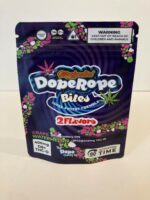
 Back in May of last year, the FDA sent out their first warning letters to companies selling Delta-8 THC products, then issued a consumer update and warning about the compound a month later. The FDA and some industry stakeholders are concerned not only about the psychoactive substance itself, but also the way it is produced that could use potentially harmful chemicals.
Back in May of last year, the FDA sent out their first warning letters to companies selling Delta-8 THC products, then issued a consumer update and warning about the compound a month later. The FDA and some industry stakeholders are concerned not only about the psychoactive substance itself, but also the way it is produced that could use potentially harmful chemicals.




